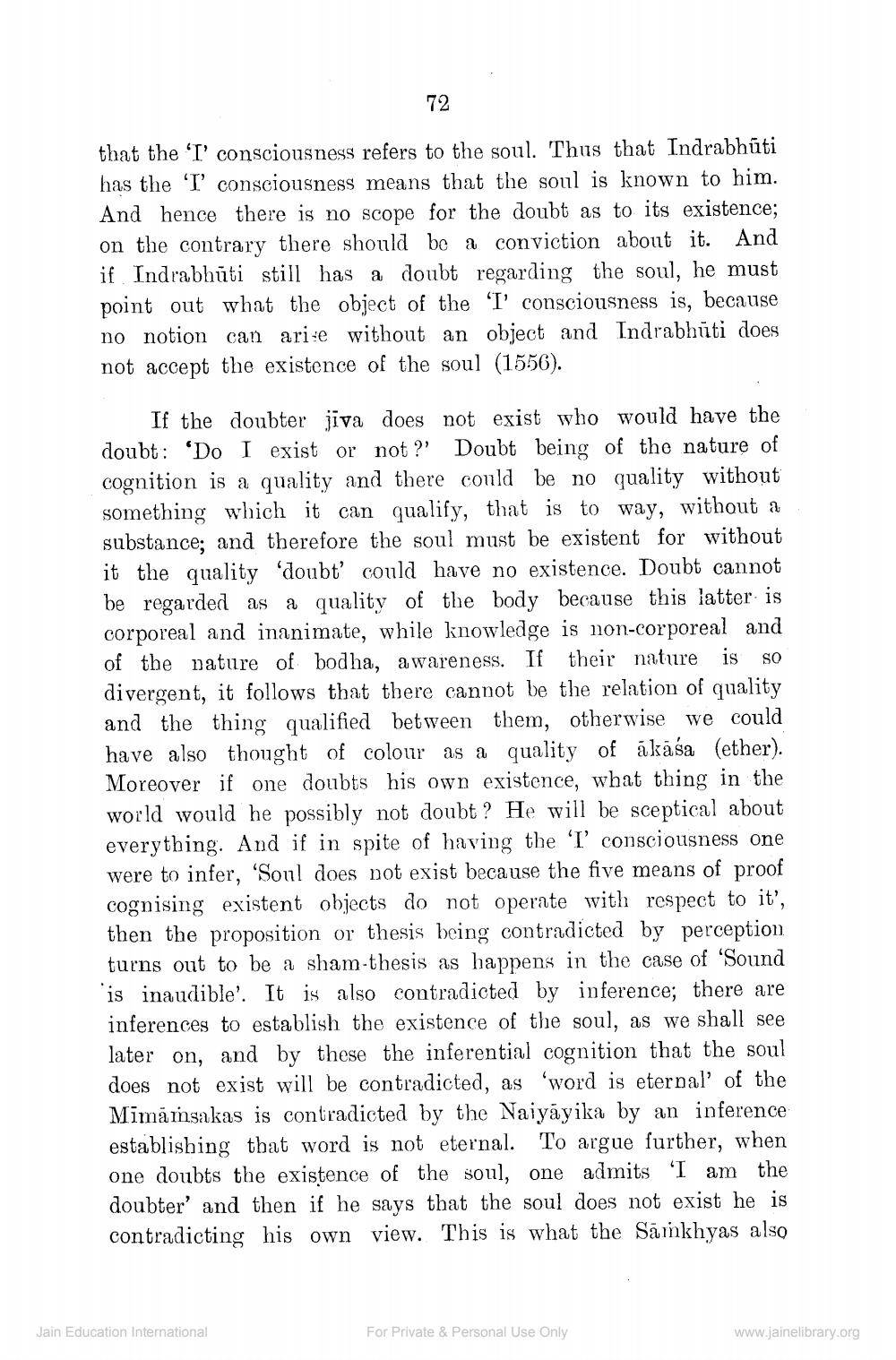________________
72
that the 'I' consciousness refers to the soul. Thus that Indrabhūti has the 'T' consciousness means that the soul is known to him. And hence there is no scope for the doubt as to its existence; on the contrary there should be a conviction about it. And if Indrabhūti still has a doubt regarding the soul, he must point out what the object of the 'I' consciousness is, because no notion can arise without an object and Indrabhūti does not accept the existence of the soul (1556).
If the doubter jiva does not exist who would have the doubt: "Do I exist or not?' Doubt being of the nature of cognition is a quality and there could be no quality without something which it can qualify, that is to way, without a substance; and therefore the soul must be existent for without it the quality doubt' could have no existence. Doubt cannot be regarded as a quality of the body because this latter is corporeal and inanimate, while knowledge is non-corporeal and of the nature of bodha, awareness. If their nature is so divergent, it follows that there cannot be the relation of quality and the thing qualified between them, otherwise we could have also thought of colour as a quality of ákāśa (ether). Moreover if one doubts his own existence, what thing in the world would he possibly not doubt ? He will be sceptical about everything. And if in spite of having the 'l consciousness one were to infer, 'Soul does not exist because the five means of proof cognising existent objects do not operate with respect to it', then the proposition or thesis being contradicted by perception. turns out to be a sham-thesis as happens in the case of 'Sound is inaudible'. It is also contradicted by inference; there are inferences to establish the existence of the soul, as we shall see later on, and by these the inferential cognition that the soul does not exist will be contradicted, as 'word is eternal of the Mīmäisakas is contradicted by the Naiyāyika by an inference establishing that word is not eternal. To argue further, when one doubts the existence of the soul, one admits 'I am the doubter' and then if he says that the soul does not exist he is contradicting his own view. This is what the Sārnkhyas also
Jain Education International
For Private & Personal Use Only
www.jainelibrary.org




